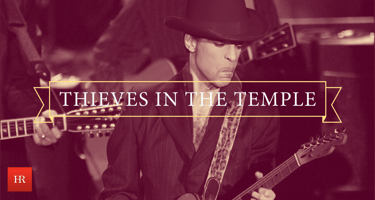Assertive versus Aggressive. Confidence versus Conceit. As a leader, we might display one over the...
I’m Not the Only One
Compliments can be hard to hear. When people of poor self-consideration are challenged to think deeper about the contributions made through their efforts, the responses can run from self-actualization to awkwardness. On the latter end of the spectrum, those exposed to their own impact might find it uncomfortable to hear it, see it and feel it. They may not have been encouraged in their own worth, more than just in work, but perhaps throughout life. Your kindness in sharing a right perspective may not be received so comfortably initially.
Remember that we don’t know the full story of everyone who comes into our lives. Asking, “what’s wrong with you?” in an attempt to get that person to think more confidently will likely work counter-productively. It may deepen their negative thoughts about self because the inability to see their worth is another example of their inability to do things well. The dichotomy here is real and it is a difficult one for the individual to overcome. As a cheerleader or praise-giver, your job is to continue in kindness and in small encouragements to chip away at that false narrative playing in their minds.
On the other end of the spectrum is the person who finally sees it. The actualization of contribution, worth and esteem hit like a warm gulf wave. It’s engulfing but not debilitating. “I matter” takes on a new meaning, if not a first meaning. Value is not only ascribed, but it is believed. To be sure, this is not an overnight realization for that person. Time has been spent to lay a new foundation.
Impactful recognition might be the breakthrough members of your team need. It may be that your decision to consistently point out healthy contribution and extra effort will make the difference for someone who isn’t used to hearing this, but who now realizes that there’s a new perspective to consider. As managers and leaders, how skilled are you at this type of consistency in recognition?
Too often, we see intentional recognition happening annually upon review. This isn’t enough to change the mindsets of those who struggle with personal impact and contribution. Consistent messaging given throughout the year seems obvious, but there are two issues with it:
1 – Most managers don’t do it
2 – Most managers don’t really know how to do it
If a manager takes the buddy-approach (“C’mon, you’re great. You have to see that. Don’t you see that? Why don’t you see that?”), even with the best of intentions, it can slide into a perceived indictment for the hearer as to another area of inability. Train managers on how to affirm and ask exploratory non-judgmental questions. For instance, “What a wonderful job you did on the Smith project. Your ability to use time effectively was key to this success. How did you learn to apply it so well?” Give the hearer the opportunity to share performance process rather than personal perspective. Those lines may overlap in the explanation, but that employee won’t dwell on it, if even notice.
If a manager takes the this-is-your-issue approach (“It’s really hard to compliment you. You don’t receive it well. I can’t keep telling you you’ve done a good job if you don’t believe me”), then you’ll keep that truth alive. The hearer won’t be open to moving forward in confidence and may begin to show a gap in performance soon. Fear of being noticed may settle in as a result of the received rebuke.
Truth be told, many struggle to take affirmation and recognition for a job well done. It’s not just one person’s problem. What we can do as leaders is help supervisors and managers. We do it by teaching them how to offer appreciation, how to respond to an “undeserving” team member and how to build confidence in the one as well as the many.




Blog comments